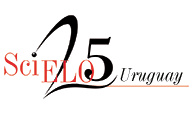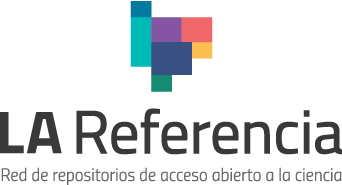Naturaleza humana y derechos posthumanos
¿por qué tiene razón Francis Fukuyama?
DOI:
https://doi.org/10.25185/10.8Palabras clave:
Francis Fukuyama, Posthumano/posthumanismo, Transhumanismo, Factor X, Derechos posthumanosResumen
El propósito del artículo es justificar la crítica de Francis Fukuyama a la concepción bioliberal del ser humano y a su propuesta de modificarlo (mejorarlo) tecnológicamente para convertirlo en un posthumano (con las consecuencias que ello acarrea, especialmente en lo concerniente a la posible convivencia entre humanos y posthumanos). Fukuyama fue, en efecto, una de las primeras y más resonantes voces que se pronunció en contra de la utopía bioliberal. Eso le convirtió en blanco de numerosas críticas. El presente trabajo se enfoca en los dos argumentos que, a mi juicio, mejor sintetizan la diversidad de objeciones lanzadas contra Fukuyama, e intenta demostrar que ninguno de ellos logra desmontar su crítica. Consiguientemente, sugiere que las tesis de Fukuyama sobre el tema continúan vigentes (al menos en sus postulados fundamentales) y que ameritan ulteriores análisis y desarrollos.
Descargas
Citas
Bostrom, Nick. “The transhumanist FAQ. A General Introduction.” World Transhumanist Association (2003). https://nickbostrom.com/views/transhumanist.pdf
Bostrom, Nick. “In Defense Of Posthuman Dignity.” Bioethics 19, nº 3 (2005): 202-214.
Braidotti, Rosi. The Posthuman. Cambridge: Polity Press Ltd., 2013.
Ferrando, Francesca. “Posthumanism, Transhumanism, Antihumanism, Metahumanism, and New Materialisms. Differences and Relations”. Existenz 8, nº 2 (2013): 26-32.
Ferrando, Francesca. Philosophical posthumanism. London/New York: Bloomsbury, 2019.
Ferry, Luc. La revolución transhumanista. Cómo la tecnomedicina y la uberización del mundo van a transformar nuestras vidas. Madrid: Alianza, 2017.
Fukuyama, Francis. El fin del hombre. Consecuencias de la revolución biotecnológica. Barcelona: Sine Qua Non, 2002.
Fukuyama, Francis. “Transhumanism―the world’s most dangerous idea”. Foreign Policy 144, (September 2004): 42-43.
Hauskeller, Michael. “Utopia”. En Post- and Transhumanism. An Introduction, editado por Robert Ranisch y Stefan L. Sorgner, 101-108. Frankfurt am Main: Peter Lang, 2014.
Jonas, Hans. Mortality and Morality: A Search for Good After Auschwitz, editado por Lawrence Vogel. Evanston, Ill.: Northwestern University Press, 1996.
Miah, Andy. “A Critical History of Posthumanism”. En Medical Enhancement and Posthumanity, editado por Bert Gordijn y Ruth Chadwick, 71-95. Netherlands: Springer, 2008.
Ndahiro, Kennedy. “In Rwanda, We Know All About Dehumanizing Language”. The Atlantic, 13 de abril, 2019. https://www.theatlantic.com/ideas/archive/2019/04/rwanda-shows-how-hateful-speech-leads-violence/587041/
Ranisch, Robert y Sorgner Stefan L. “Introducing Post- and Transhumanism”. En Post- and Transhumanism. An Introduction, editado por Robert Ranisch Robert y Stefan L. Sorgner, 7-27. Frankfurt am Main: Peter Lang, 2014.
Roache, Rebecca y Clarke, Steve. “Bioconservatism, bioliberalism, and the wisdom of reflecting on repugnance”. Monash Bioethics Review 28, nº 1 (2009): 1-21. https://doi.org/10.1007/BF03351306
Rugo, Danielle. “Posthuman”. En Oxford Research Encyclopedia of Literature, (2020). https://doi.org/10.1093/acrefore/9780190201098.013.1136
Savulescu, Julian. “The Human Prejudice and the Moral Status of Enhanced Beings: What Do We Owe the Gods?”. En Human Enhancement, editado por Julian Savulescu y Nick Bostrom, 211-247. Oxford: Oxford University Press, 2009.
Sharon, Tamar. “A cartography of the posthuman: Humanits, non-humanist, and mediated perspectives on emerging biotechnologies”. Krisis 2, (2014): 4-19.
Whitehead, Alfred N. Process and Reality. An Essay in Cosmology. New York/London: The Free Press, 1978 (1929).
Publicado
Cómo citar
Número
Sección
Licencia
Derechos de autor 2021 Leandro Gaitán

Esta obra está bajo una licencia internacional Creative Commons Atribución 4.0.






























 Esta obra está bajo una licencia de
Esta obra está bajo una licencia de 